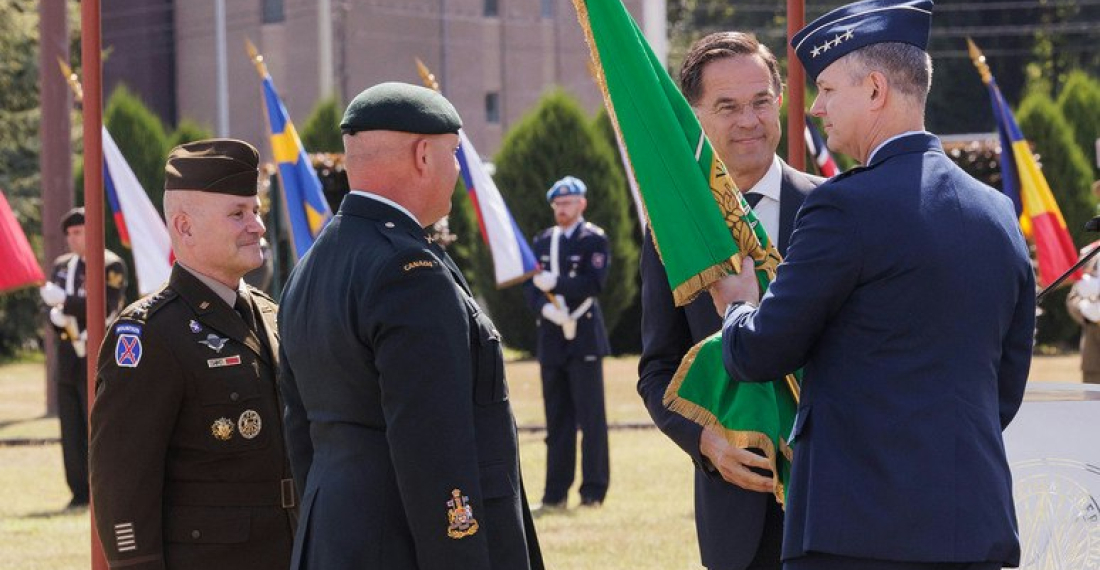General Alexus G. Grynkewich of the US Air Force assumed command of Allied Command Operations in a ceremony at Supreme Headquarters Allied Powers Europe in Mons, Belgium on Friday (4 July 2025). General Grynkewich succeeds General Chris Cavoli of the US Army, who had been in post since 2022.
NATO Secretary General Mark Rutte commended General Cavoli for modernising NATO’s collective defence and for his work responding to the ongoing Russian full-scale invasion of Ukraine. He thanked General Cavoli for strengthening NATO’s presence in the Baltic Sea, to deter and defend against threats targeting Allies’ critical undersea infrastructure, as well as for conceiving and establishing NATO’s new command in Germany, which is bolstering support to Ukraine. “You have been an outstanding SACEUR, leading with honour and integrity,” said Mr Rutte.
The Secretary General welcomed General Grynkewich, noting that he brings a wealth of experience to the post of SACEUR. As a former fighter pilot, General Grynkewich has “a deep understanding of the threats we face from the skies, and across other domains,” said Mr Rutte. As the latest Director of Operations of the Joint Staff, he also has wide experience of delivering military and security priorities in the face of global challenges. “I know NATO can count on you to serve with the same steadfast resolve as your predecessors,” the Secretary General concluded.
Allied Command Operations is responsible for the planning and execution of all NATO operations. General Grynkewich is the twenty-first Supreme Allied Commander Europe (SACEUR). The first to occupy the post was General Dwight D. Eisenhower, subsequently the 34th President of the United States.
source: commonspace.eu with NATO Update (Brussels).
photo: General Alexus G. Grynkewich of the US Air Force assumed command of Allied Command Operations in a ceremony at Supreme Headquarters Allied Powers Europe in Mons, Belgium on Friday (4 July 2025). Picture courtesy of nato-int (Brussels).







